- 0474 708 070
- Specialist Criminal Defence Lawyers | Available 24/7
Larceny
The offence of Larceny is found in section 117 of the Crimes Act 1900 (NSW) which deems a person guilty if they take property which belongs to another person without their consent.
You could be charged with Larceny if you:
Steal goods from a store
Take a book from a library without authorisation
What Actions Might Constitute Larceny?
Larceny, commonly known as theft, involves the unlawful taking of property. For a larceny charge to be proven, several key elements must be established:
Theft of Property:
- The property must be tangible and possess some value. Examples include a cheque, a quantity of gas, or a physical object. However, intangible items like information do not qualify as property for larceny.
Property Belonging to Someone Else:
- The property must lawfully belong to someone else. This includes property owned by another individual or entity, as well as items in the lawful possession of someone who may not necessarily own them. Courts have even determined that prohibited drugs can be subject to larceny, despite the possessor having no legal right to them
Lack of Intent to Permanently Deprive:
- An important aspect of larceny is the intention behind the act. Even if the accused intends to return the property or provide something of equal value later, it does not negate the crime if they or someone else has received a benefit. For example, taking an item from a store with the intent to return it for a refund still constitutes larceny.
Examples of Larceny
Shoplifting
- Taking an item from a store without paying for it, even if you plan to return it later for a refund.
Stealing Money
- Taking cash from someone’s wallet or cash register.
Theft of Valuables
- Removing jewelry, electronics, or other valuable items from someone’s home or place of business without permission.
Cheque Theft
- Taking someone’s cheque and cashing it or attempting to cash it.
Understanding these elements and examples is crucial for recognizing what constitutes larceny and the potential legal consequences. If you are facing a larceny charge, it is essential to seek legal advice to understand your rights and possible defences.
What must the prosecution prove?
- You took property with the intention of permanently depriving the owner;
- That property belongs to another person;
- That other person did not give their consent for you to take the property.
What are the maximum penalties for this offence?
The maximum penalty for Larceny in NSW is:
- Five years imprisonment.
Possible Defences Against Larceny Charges
When facing a larceny charge, several valid legal defences can be employed to challenge the allegations. Here are some potential defences:
No Intention to Permanently Deprive:
It can be a defence to larceny if the accused did not intend to permanently deprive the owner of the property at the time of taking. However, there must still be an element of dishonesty involved in the taking of the property. Merely forming the intent to permanently deprive after taking the property is not sufficient for this defence to apply.
Claim of Right:
Another defence is if the accused honestly believed they had a claim of right to the property. To successfully use this defence, the accused must demonstrate a genuine and honest belief that they were legally entitled to the property taken. It must be a belief in entitlement to the entire property, not just part of it.
Legal Advice
If you have been charged with larceny and believe you have a valid defence, it is crucial to seek competent legal advice as soon as possible. An experienced criminal defence lawyer can assess your case, advise you on your legal rights, and help you navigate the legal process effectively.Don’t face these charges alone. Contact a qualified legal professional to discuss your case and explore your defence options. Early intervention and strategic legal representation can make a significant difference in the outcome of your case.
What are your options at Law?
If you are facing charges of Larceny, the team at Barsha Defence Lawyers can exercise the following options on your behalf to protect your interests:
Negotiate with prosecutors to withdraw or amend the charges.
Plead not guilty to the charges and present a case at a Hearing/Trial to challenge the prosecution’s case.
Plead guilty to the charges but dispute the facts alleged at a “disputed facts hearing”.
Plead guilty to the charges and the facts at a Sentencing hearing with an objective to obtain the most lenient penalty available.
If you agree that you have committed the offence and/or the police are able to establish the offence, it is best to plead guilty at the earliest possible opportunity to receive the maximum discount. The maximum discount available for an early plea of guilty is 25% of the sentence the Court is minded to impose.
Generally, if you are guilty of an offence and would like to avoid a criminal conviction, it is preferable that you enter a plea of guilty at the earliest opportunity.
Facing a larceny charge?
Barsha Defence Lawyers provides a complimentary initial consultation to guide you through the legal process, explore defense strategies, and clarify potential outcomes. Available 24/7, our expert team is here to support your legal needs. Contact us today to schedule your first free consultation and secure robust representation for your case.
